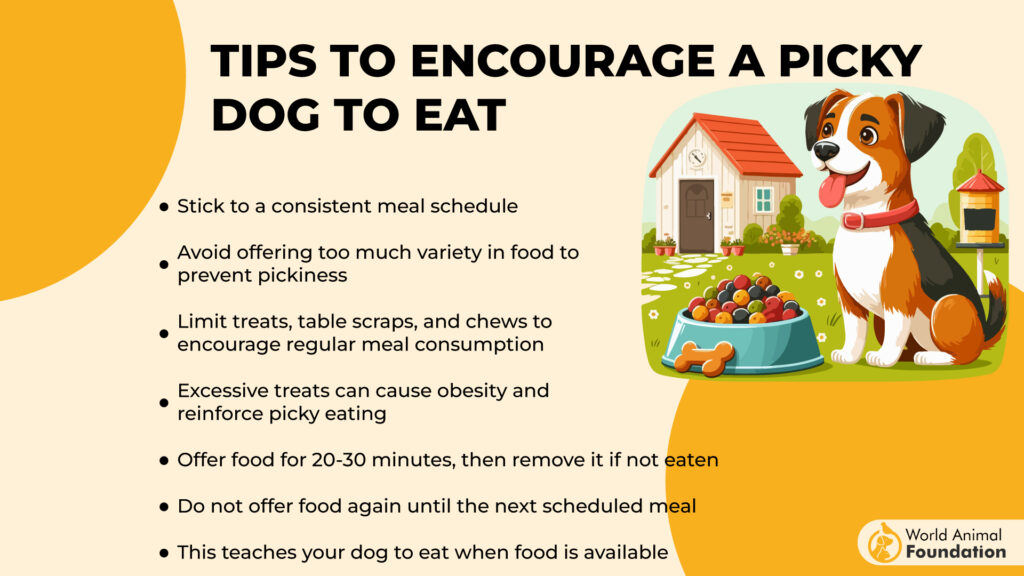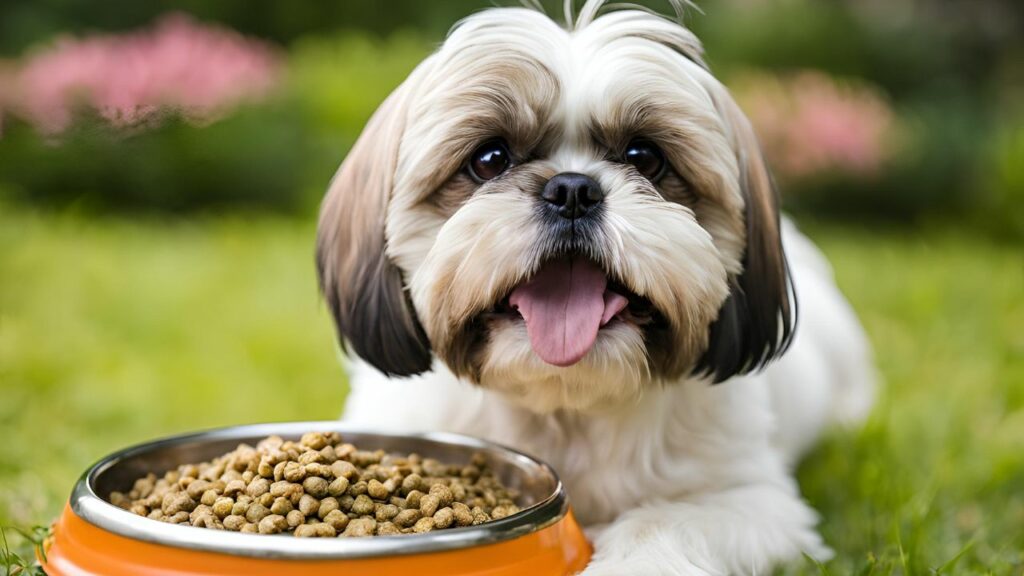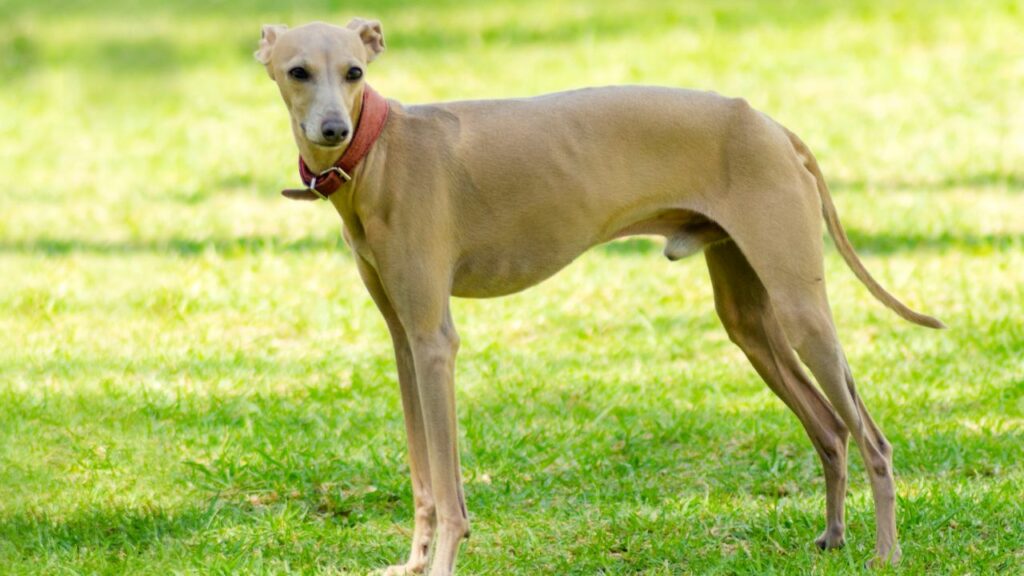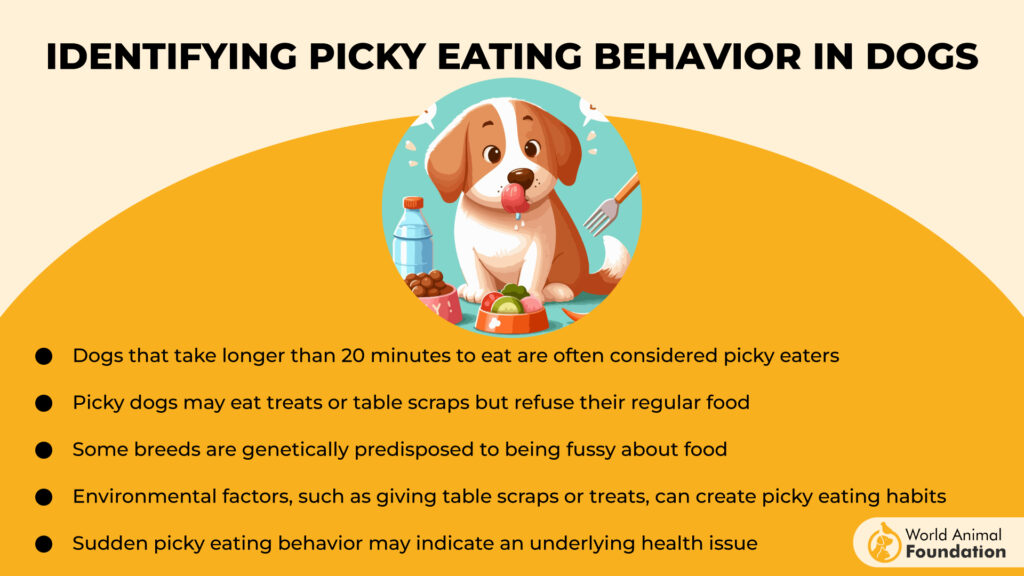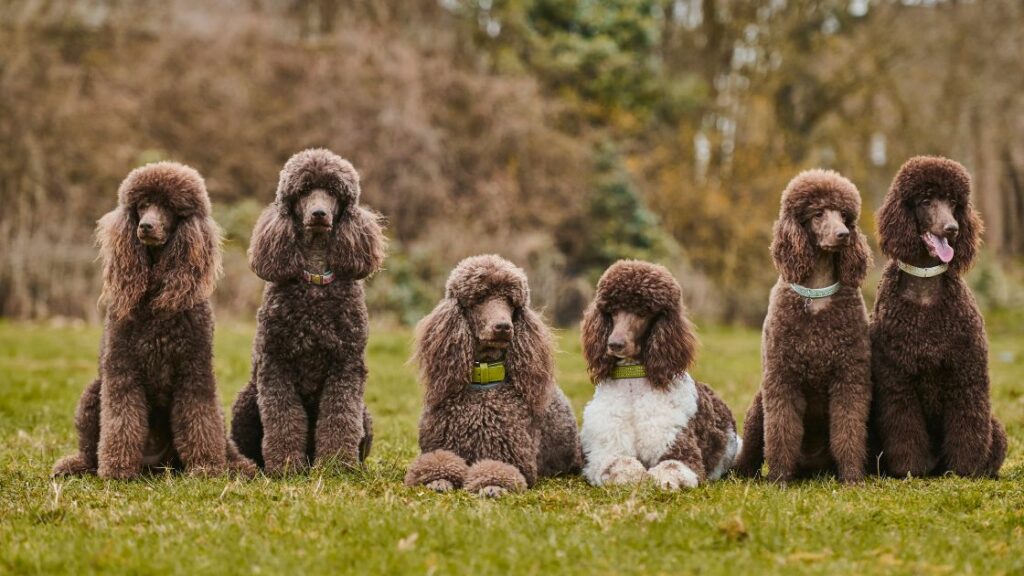Finicky Fido? Some dogs are more discerning diners than others, turning up their noses at perfectly good kibble. From pampered pups to breeds with naturally sensitive stomachs, picky eating can be a frustrating hurdle for pet owners. Discover the seven dog breeds most notorious for their selective palates, and learn why they might be so choosy. Uncover the potential reasons behind their finickiness, along with helpful tips and tricks to ensure your four-legged friend gets the nutrition they need, even if they’re a member of the pickiest eaters club.
At the dog park, you often hear stories of dogs scarfing down their food in seconds, but for some pet owners, it’s a very different experience. If you have a dog that sniffs its bowl and walks away, leaving you wondering if they’ll ever eat, you’re not alone.
Feeding time is usually a joyful moment between a loving owner and a hungry pup, but when your dog turns up their nose at even the best food, it can become a frustrating daily challenge.
A telltale sign of a picky eater is when your dog happily devours treats or table scraps but refuses their regular meals. This could mean they’re holding out for tastier options and finding their usual kibble too “boring.” In some cases, picky eating can be linked to genetics, as certain breeds are more selective about their food. Health issues, boredom, or feeding habits (like too many treats) can also play a role.
To help you better understand your pup, we’re diving into the top 7 pickiest eating dog breeds, so you can identify if your dog might be on the list and learn how to handle their fussy eating habits.
Pickiest Eating Dog Breeds
1. Afghan Hound
The Afghan Hound is known for being a high-maintenance breed, particularly when it comes to their diet. While they are intelligent, their stubborn nature can make both training and feeding a challenge. Afghan Hounds are notorious for being picky eaters and won’t eagerly devour their food like some other breeds.
If they’re given too many treats, they can become even fussier about their regular meals. With their lean bodies and fast metabolisms, Afghan Hounds require a nutrient-rich diet to stay healthy, but they often turn their noses up at food that doesn’t meet their high standards.
Many owners resort to offering fresh, homemade meals or a variety of high-quality options to satisfy their dog’s refined tastes. To avoid fussiness, it’s important to establish a feeding routine from an early age, helping ensure they maintain a balanced diet and reducing the risk of high feeding costs.
2. Shih Tzu
Shih Tzus are well-known for being picky eaters, like many toy breeds. These small dogs can be selective about their food for various reasons, including stress, dietary changes, dental issues, or underlying health problems. If your Shih Tzu stops eating, it’s important to watch for additional signs like lethargy, vomiting, or diarrhea, which may indicate a deeper health concern.
With sensitive stomachs and a tendency towards food allergies, Shih Tzus often turn their noses up at anything that doesn’t meet their high standards. Many owners find themselves experimenting with different high-quality, well-balanced meals to find something their Shih Tzu will enjoy.
Patience is key, as it can take time for them to adjust to new foods or routines. Adding variety, such as mixing in wet food or finely chopped vegetables with their dry kibble, can help entice them to eat.
3. French Bulldog
French Bulldogs are known for their varied personalities, and this extends to their eating habits. While some Frenchies will gobble up any food they can find, others have a more “refined” palate, quickly losing interest in their regular dog food. This pickiness can make mealtime a bit of a challenge for owners.
To keep your French Bulldog healthy, it’s important to provide a well-balanced diet that includes the right amount of macronutrients such as proteins, fats, carbohydrates, vitamins, minerals, and plenty of water. The nutritional needs of a Frenchie can change depending on their life stage. For instance, a puppy will have different requirements than a senior dog or a pregnant one.
Monitoring their calorie intake and portion sizes is key to preventing overeating or weight gain, especially since French Bulldogs can easily put on extra pounds. It’s also important to avoid feeding them table scraps or high-calorie treats and to ensure they get plenty of exercise to maintain their overall health.
4. Greyhound
Despite their large size, Greyhounds are surprisingly sensitive and emotional dogs, which can lead to picky eating, especially during times of stress or change. It’s natural to feel concerned if your Greyhound suddenly refuses to eat their usual food, particularly since they tend to look leaner than most other breeds.
When this happens, it can be tempting to add extra treats or try different foods to encourage them to eat. While it’s fine to introduce some variety to their meals, be cautious about changing their food too frequently, as this can reinforce picky eating habits.
Greyhounds often prefer meals that are high in protein and may gravitate toward fresh, meat-based options rather than processed dog food. Their pickiness is often linked to their sensitive stomachs and specific dietary needs. A balance between offering variety and maintaining consistency will help keep your Greyhound both happy and healthy at mealtime.
5. Cavalier King Charles Spaniel
If you’ve never dealt with a picky eater before, you might be surprised by the eating habits of Cavaliers, especially when they’re puppies. Cavaliers can be quite finicky about their food, and while food puzzles can sometimes keep them interested, they don’t always work. Some Cavaliers may have food sensitivities or be prone to conditions like gastritis or pancreatitis, while others are simply picky for no apparent reason.
Many Cavalier owners find themselves purchasing premium dog food or even opting for homemade meals to satisfy their pups’ refined tastes. There are online communities, such as Facebook groups, where owners share homemade dog food recipes to keep their furry friends happy and healthy.
However, Cavaliers are also prone to weight gain, which can lead to serious health issues like joint problems or heart failure. If you choose to prepare homemade meals, it’s essential to consult a Veterinary Nutritionist to ensure your dog’s diet is balanced and free from deficiencies, as even the best intentions can lead to health risks without proper guidance.
6. Poodle
If your Poodle is a finicky eater, mealtime can be a constant source of worry. Whether you have a Standard, Miniature, or Toy Poodle, these intelligent dogs are known for having refined tastes and can quickly turn into picky eaters if their meals don’t meet their standards.
Poodles often prefer a varied diet that includes fresh, high-quality ingredients, and they can easily lose interest in bland or repetitive meals. Additionally, they’re prone to food allergies, which makes it even more important to find a nutritious and suitable diet that won’t upset their sensitive stomachs.
To make mealtimes more enjoyable for both you and your Poodle, reassessing their diet and making small changes can make a big difference. However, if the situation doesn’t improve after a week or so, it’s always a good idea to consult your veterinarian.
7. Yorkshire Terrier
Originally bred as working dogs, Yorkshire Terriers have big personalities—and strong opinions about their food. These little dogs are known for being particularly picky eaters, often turning up their noses at new foods with unfamiliar tastes, textures, or smells. Changes in diet can easily lead to refusal to eat, especially if the transition is too abrupt.
Yorkies tend to be selective about what they consume, sometimes eating only specific ingredients while leaving the rest untouched. Their small size means they need a calorie-dense diet, but finding the right food that meets both their nutritional needs and picky preferences can be a challenge.
Many Yorkshire Terriers develop a preference for fresh, home-cooked meals or premium dog foods. Their pickiness often stems from their sensitive digestive systems, so it’s essential to carefully choose and transition their food to keep them happy and healthy.
Conclusion
Dealing with the pickiest dog breeds can be a challenging task for dog owners, as most dogs will happily devour their meals while others, like Cavalier King Charles Spaniels, tend to be more selective. Some picky dogs prefer fresh meals or tasty treats over their regular kibble, while others may refuse the same food day after day.
It’s important to remember that picky eating could be a sign of underlying health concerns, especially for dogs with delicate digestive systems. Ensuring your four-legged friend gets the right balance of nutrients, including quality proteins like animal fat and avoiding rendered meats, is key to keeping them healthy.
If your dog loves human food or shows a preference for dog treats over meals, it can be tempting to give in, but it’s essential to find a long-term solution that encourages your dog to eat regularly. Experimenting with different textures, flavors, and even incorporating fresh meals can make a big difference in appealing to the pickiest eaters. However, if you’re struggling to get your dog to eat consistently, it’s always a good idea to get your dog checked by a veterinarian to rule out any potential health issues.
While all dogs can exhibit finicky eating habits, certain breeds, like the aforementioned seven, are predisposed to selective palates. This pickiness can stem from smaller appetites, sensitivity to ingredients, or even just plain stubbornness. Understanding your breed’s tendencies is crucial. Patience, a consistent feeding schedule, and sometimes veterinary guidance are key to managing a picky eater and ensuring they receive proper nutrition for a healthy, happy life. Don’t resort to constantly changing foods, as this can exacerbate the problem. Instead, focus on establishing healthy eating habits from puppyhood.


